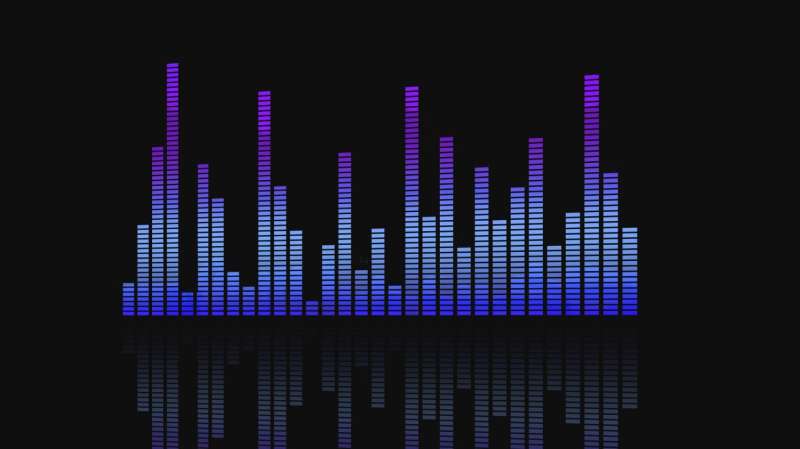September 25, 2018 weblog
Deezer explores AI system for music that matches mood

Deezer is a France-based personal music streaming service. They are ambitious in securing a place in the frontlines of the streaming business. Signs are that they are working on technology that can make a difference for service-seeking music listeners. One banjo player's bluebird, after all, is quite another animal for a jazz singer and bassist.
Deezer is now on to work with artificial intelligence to crank up the quality of personalized streaming services. Their researchers have been attracting media attention with their paper, which is now on arXiv.
"Music Mood Detection Based on Audio and lyrics with Deep Neural Net" presents their research method and findings. They described their path toward an artificial intelligence system that can match tracks with moods. It is a path where they pay attention to how to achieve detections via the audio signal and the lyrics.
Olivia Tambini in TechRadar sifted through the paper's technical descriptions to sum up what they did. "Researchers at Deezer have trained the AI system to recognise the emotion and intensity of a song using audio signals, linguistic data including lyrics, and an aggregation of Last.FM song tags describing tracks (for example, upbeat or sad)."
Jon Fingas in Engadget walked readers though the tools and techniques they applied. "Deezer trained the AI using raw audio signals, linguistic context reconstruction models and a Million Song Dataset that aggregates Last.fm tags describing tunes (such as "calm" or "sad"). The researchers mapped the MSD to Deezer's library using song metadata, extracting individual words from the lyrics in the process. The result was an 18,644-song database the team could use to both train AI on song moods and to test its theories."
(The paper's authors defined The MSD as a large dataset commonly used for MIR tasks. The tracks were associated with tags from LastFM, some of which were related to mood.)
Deezer's team said in their paper, "Music Information Retrieval (MIR) has been an ever growing field of research in recent years, driven by the need to automatically process massive collections of music tracks, an important task to, for example, streaming companies."
Melissa Daniels last year looked at the rise of music discovery through the years, in Forbes.
"Before the digital revolution, music discovery happened through a blend of fate and coincidence—like turning on the radio at the right time or picking up a new sampler CD at the indie record store. Somehow, that brand-new melody and those unheard lyrics sounded incredibly familiar, connecting on an emotional level as exactly the song you needed to hear. But with streaming platforms taking over mainstream listening, the magic of discovery is now in the method itself."
TGIF songs. Chill songs. That is pretty cool to know there are services where if you feel it, AI can nail it. An AI workup that can as correctly as possible classify music by intensity and mood is encouraging.
PCMag went ahead to say that it think it's better than previous models.
Why? Right time, right place.
"Deezer can in theory provide more accurate playlists and song sorting specific to a subscriber's mood," said Adam Smith. "This could result in Deezer suggesting tracks that make you feel happier without necessarily resorting to cheesy pop, or tracks that can chill you out without you drifting off."
Why this matters: A fitting response might be "Are you kidding?" An article in The Daily Star summed up the frustration one might have to deal with listening tools of the trade. " When it comes to playlists and auto play, "music listeners are looking for streams that fit both their current mood and the intensity of the feeling. When you're feeling down, there's nothing worse than your sad song playlist being interrupted by nightclub summer bop; let's be real, not every time and place is the right one."
What's next? The researchers are still interested in going further on this, with an ambitious wish list of areas in which they may focus. "Future work could also rely on a database with labels indicating the degree of ambiguity of the mood of a track, as we know that in some cases, there can be significant variability between listeners. Such databases would be particularly helpful to go further in understanding musical emotion."
They said they also left it to future work "to pursue improvements of lyrics-based models, with deeper architectures or by optimizing word embeddings used as input."
More information: Music Mood Detection Based On Audio And Lyrics With Deep Neural Net, arXiv:1809.07276 [cs.IR] arxiv.org/abs/1809.07276
© 2018 Tech Xplore




















